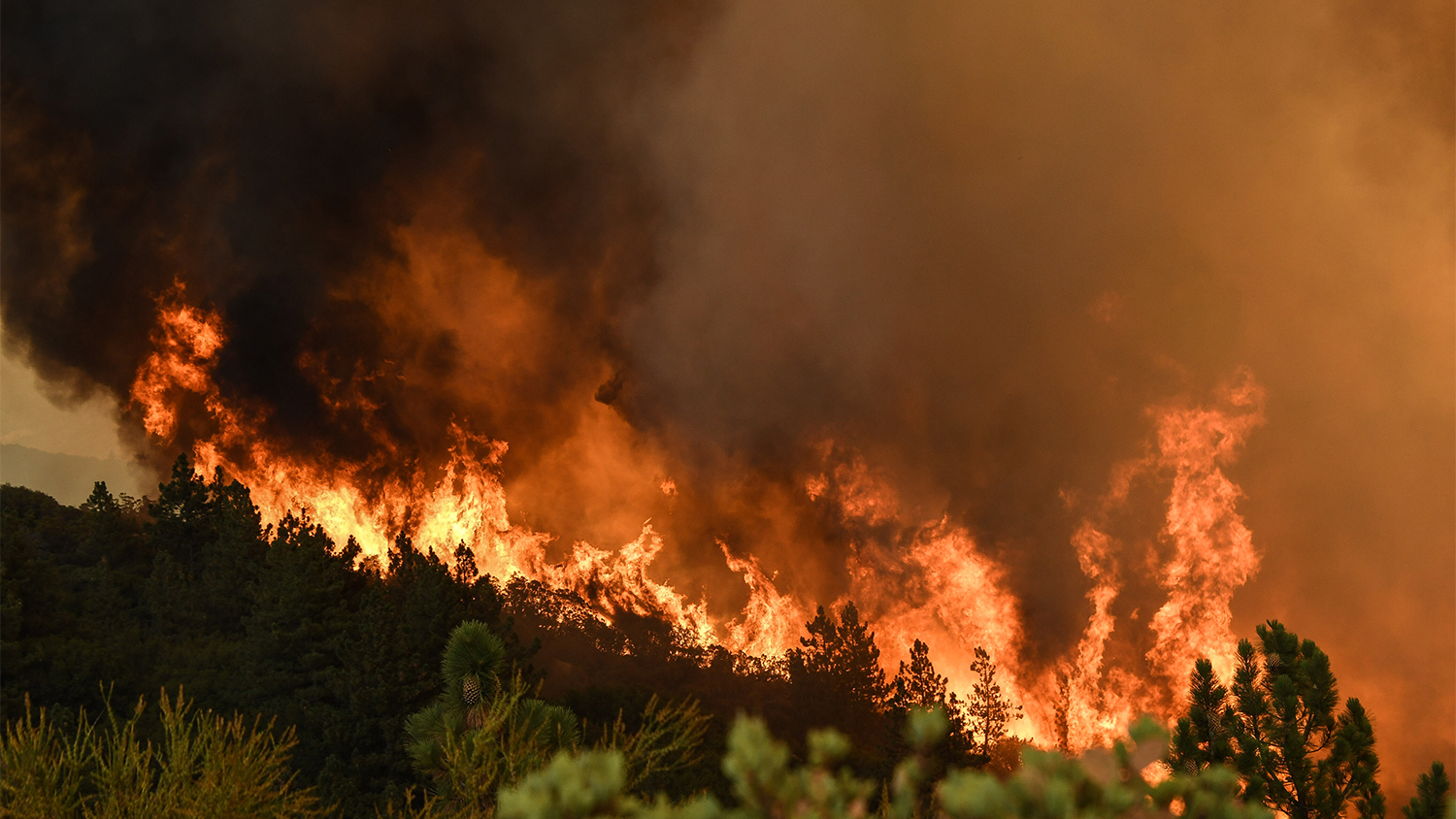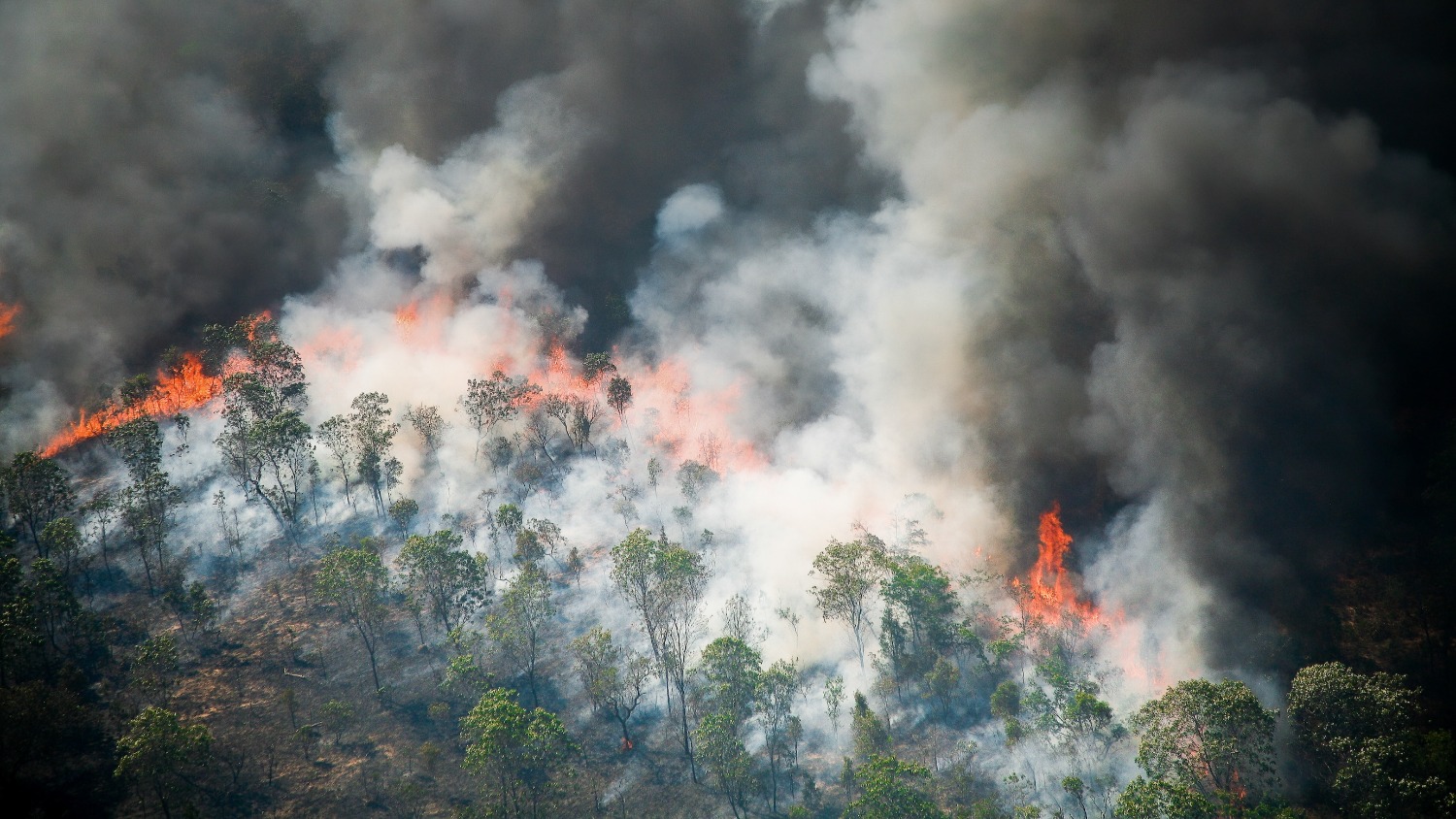How Do Wildfires Impact Air Quality?

Wildfires can blanket the skies with heavy smoke, creating unprecedented levels of air pollution that pose a serious health risk to both nearby residents and those hundreds of miles away.
The most significant air pollutant that arises from wildfire smoke is particulate matter — a mixture of solid particles and liquid droplets found in the air, according to Jennifer Richmond-Bryant, an associate professor of the practice of forestry and environmental resources at NC State.
“When you have trees burning, you have particles produced along with rapid volatilization of the oils in the trees,” Richmond-Bryant said. “When you have homes or other buildings burning, you also have emissions from burning different types of home materials, such as household cleaners, plastics and finishes. The mix of hazardous toxins in the air is hard to predict.”
Airborne fine particulate matter is so small that it can be inhaled and cause severe health problems, especially with particles less than 2.5 micrometers in diameter. These microscopic particles can go deep into one’s lungs, and some may even be small enough to enter the bloodstream. Research shows that these particles are especially harmful to individuals already suffering from respiratory diseases.
“The most severe impacts tend to be cardiovascular and mortality,” Richmond-Bryant said. “When you’re exposed to high quantities of particulate matter, even in a short period of time, it can lead to stroke or cardiac arrest. People may also have asthma attacks or other respiratory effects. It can also irritate the eyes and the skin.”
People who are hundreds of miles away from the wildfires can also be affected because the smoke plumes are transported with the wind. The wind can transport the plumes and spread them out over the distance they travel, with impacts felt throughout the west and possibly to some extent throughout the U.S.
Studies have shown effects from wildfires to be far-reaching, such as the July 2002 forest fires in Québec, Canada. During those fires, airborne particulate matter traveled more than 700 miles to Baltimore, Maryland, causing a substantial increase in outdoor and indoor fine particulate matter.
When wildfires produce an Air Quality Index greater than 301, there is excessive risk of health impacts. “When you have air pollutant concentrations that are so high, you might be talking about people who don’t previously have health concerns suffering health impacts,” Richmond-Bryant said. “Sometimes, when you have moderate levels of air pollutants, you might predict impacts among people who are most vulnerable. But at such high concentrations, anybody can be affected.”
With the scale of the wildfires being so large and out of control, large-scale planning efforts need to occur to mitigate the fires’ worst impacts. People also need to be conscientious about their role in the environment and protecting themselves. “One of those fires was started by a gender-reveal party, so people need to respect the fact that there are dry conditions out West, that any kind of excess spark is not needed right now,” Richmond-Bryant said.
Post last updated on February 21, 2025


